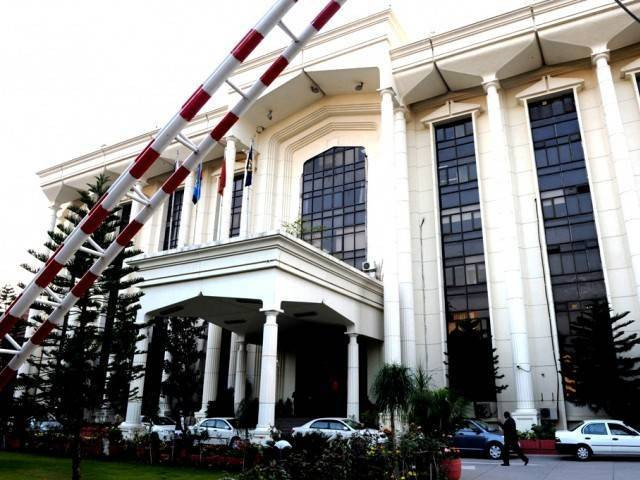IPR violations causing revenue loss
Survey participants regret insignificant penalty on IPR violations

Violation of intellectual property rights (IPRs) is a major reason behind low foreign direct investment in Pakistan as well as meagre spending on research, development and innovation in businesses, said Prime Minister’s Economic Advisory Council member Dr Abid Qaiyum Suleri.
Speaking to The Express Tribune on Tuesday, he said that IPR violation in the textile and garments sector, software development segment and cosmetics space not only caused mammoth losses to businesses but also deceives the consumers.
The IPR Survey 2021, conducted by the Overseas Investors Chamber of Commerce and Industry (OICCI), found out that IPR violations resulted in loss of significant revenue to companies and the government.
The respondents expressed concern regarding the penalty on IPR violations being insignificant and insufficient to act as a deterrent. Moreover, they added that the IP tribunals are not fully functional in all three major cities of Pakistan ie Karachi, Lahore and Islamabad.
It takes one to three years to resolve a standard IPR dispute, claimed 37% of the respondents whereas 22% stated that it consumed over five years.
The survey, conducted in late 2021, reflected the views of the foreign investors on the state of intellectual property protection in Pakistan. Effective protection of IPR comprising of copyrights, patents and trademark is critical for attracting and retaining foreign direct investment (FDI) in the country. The survey found out that confidence of foreign investors on the Intellectual Property Organisation of Pakistan (IPOP) increased during the year as it rose from 17% in 2020 to 37% in 2021.
The OICCI members asked IPOP for support in strengthening the IPR regime by automating and fast-tracking the process of registering IPs and promoting awareness on the importance of IPRs and its impact on business and investment.
They also called upon the regulatory authority for improving the skills of law enforcement agencies (LEAs) to proactively stop the abuse of IPRs. “IPR laws are less effective in Pakistan due to minimal penalties and ineffective work done by the law enforcement agencies,” said Arif Habib Commodities CEO Ahsan Mehanti. “Implementation of swift IPR regime would attract talent to Pakistan and support the small and enterprises as well as multinational firms of the country.”
He further said that “there have been examples of violation in services and industrial units in famous brands”.
Once the IPR laws are strengthened, the government would benefit from increase in foreign direct investment on the back of improvement in business confidence. Such a regime will also lower the pressure from the citizens and civil rights groups on the government. “The sectors that bore significant losses due to IPR violations are pharmaceutical, home appliances, petroleum and chemicals,” said OICCI General Secretary Abdul Aleem.
Frequent violations of IPR result in massive revenue loss to the national exchequer and the country.
Moreover, it hinders FDI and innovation culture which obstructs the economic development of a country, he added.
“The OICCI members rely on their own resources for monitoring the threat of IPR violations,” he said. “However, there is a great desire for all the IP owners to work in partnership with the government authorities for a better IPR regime in Pakistan.” The key concerns highlighted in the survey were lack of awareness and appreciation about IPR, lengthy timelines for granting IP rights, long-drawn judicial proceedings, inadequately trained staff at LEAs and low penalties prescribed under IPR laws for IPR violations.
Published in The Express Tribune, January 19th, 2022.
Like Business on Facebook, follow @TribuneBiz on Twitter to stay informed and join in the conversation.



















COMMENTS
Comments are moderated and generally will be posted if they are on-topic and not abusive.
For more information, please see our Comments FAQ